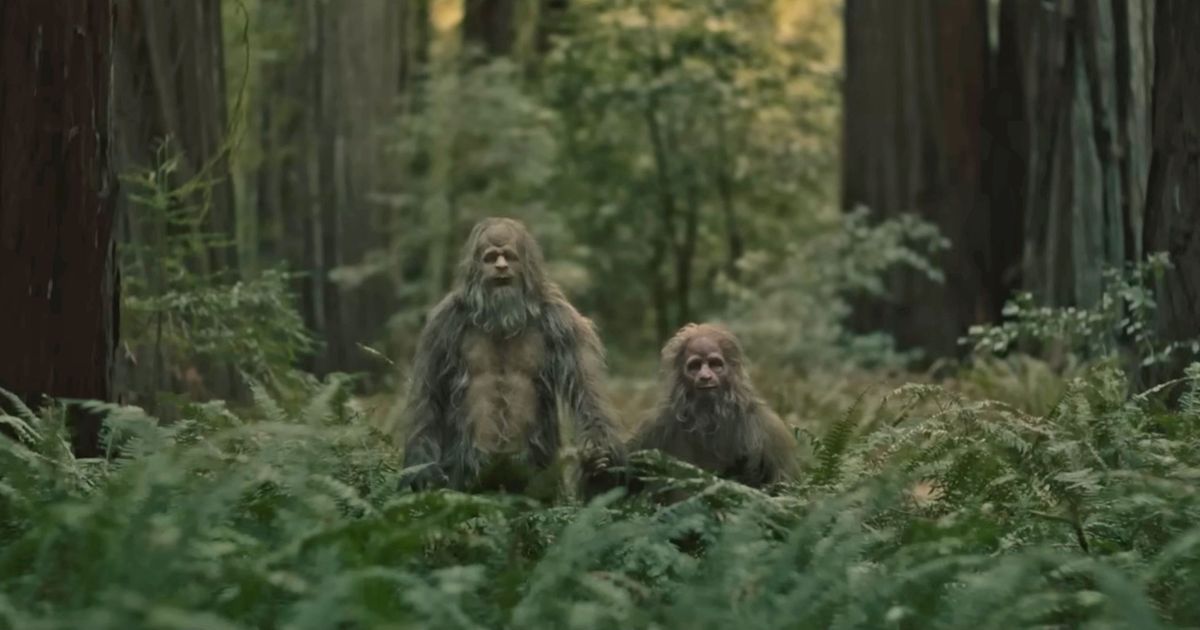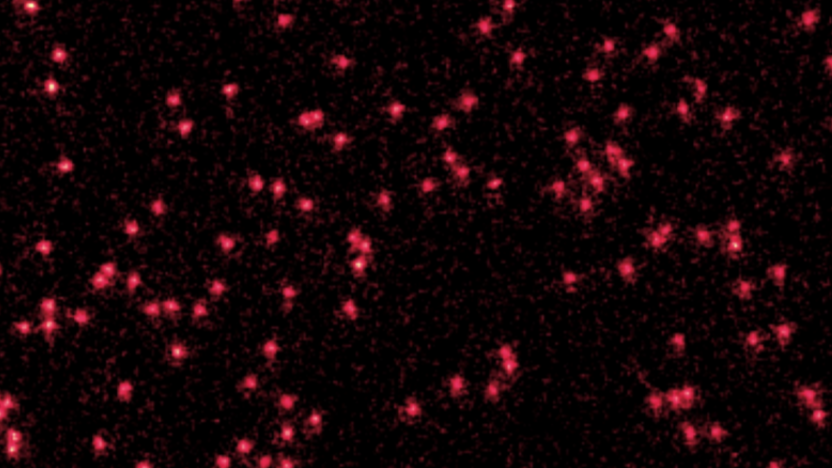If a tree falls in a forest, does it make a sound? And if a celebrity stars in a movie but is entirely unrecognizable, does it matter?
The answer to that first question is self-evident, according to Sasquatch Sunset, which follows a pack of four of the mythical creatures of its title over a year as they deal with internecine drama, weather some losses, welcome new life, and face an existential threat. The deep woods in which the film takes place may be mostly free from human encroachment, but these cryptids bear witness to what’s happening and contribute some distinctive noises of their own. The answer to the second question is a little more fraught.
The Bigfoots — Bigfeet? — are all played by actors in furry bodysuits and expressive facial prosthetics that allow each character to be a distinctive individual while obscuring the person underneath. One of those persons is Jesse Eisenberg, who plays the older of the group’s beta males, a reflective type whose efforts to number the stars are stymied because he isn’t able to count past three. Another is Riley Keough as the clan’s sole female, a situation that goes a long way toward explaining why her character’s default expression is one of resigned acceptance. There’s no dialogue, but the Sasquatches communicate volumes through grunts, hoots, shrieks, gestures, and, when the occasion calls for it, bodily fluids.
These are real performances, in other words, though they’re no more involved than the ones given by Christophe Zajac-Denek, as the quartet’s youngest member, and Nathan Zellner, who, in addition to directing the movie with his brother David, plays the glowering leader. While there may be more to acting than showing off your famous face, the casting of name talent to give wordless portrayals under mounds of latex has the air of a stunt. A lot of the movie does. The glee everyone involved obviously felt in getting this improbable flick made is never balanced out by a sense of why anyone would need to actually watch it.
Look, we all want to see something genuinely different. Sundance, where the film premiered, once had a reputation as a haven for work too daring for the mainstream, though in recent years it’s more of a showcase for films that are functionally audition tapes to direct a franchise installment or streaming drama. To its credit, Sasquatch Sunset is definitely not that, though it isn’t enough for a stand-alone film, either. The Zellners came up through that festival scene with inventive and idiosyncratic DIY shorts, with one of them being 2010’s Sasquatch Birth Journal 2, in which a cryptid gives birth in a tree in a grainy single shot, then rinses her crotch and her newborn off before scampering away. Their full-length movies include 2014’s Kumiko, the Treasure Hunter, starring Rinko Kikuchi as a Japanese woman fruitlessly looking for the ransom money from Fargo she’s convinced is real, and 2018’s Damsel, a western comedy starring Robert Pattinson, Mia Wasikowska, and a miniature horse.
These longer works have a tendency to feel like an hour’s worth of engaging ideas stretched over a feature’s runtime, a sensation that’s doubly true for Sasquatch Sunset, which probably could have accomplished all it needed to in 30 minutes. It lumbers along, taking the observant tone of an un-narrated nature documentary, with the local fauna providing reaction shots to sequences like the early one in which a pair of the Sasquatches mate noisily while the other two look on. Sasquatch Sunset’s creatures, while generally human-shaped, have the unfettered behavior of animals, but the film can’t help but lean into this as a joke rather than just letting it be. A scene in which the Sasquatches freak out over the discovery of a paved road turns their reaction into slapstick instead of making clear whether what they’re feeling is supposed to be territoriality or genuine panic.
The cryptids do face some other, more immediate conflicts — they expel a member of their group for bad behavior and lose another to an incident inspired by, of all things, the 1971 Paul Newman movie Sometimes a Great Notion. But Sasquatch Sunset wavers between earnestness and irony in a way that erodes its final turn toward pathos, one that feels like it might have been more effective if the film as a whole were tighter and less of a prolonged meander through bodily humor and meditative sequences of chewing the cud. More than anything, I wished, leaving it, that there were room for films between shorts, which often vanish into nothing, and features that need to make a splash to justify their being — room to have Sasquatch Sunset exist outside the pressures that have shaped it, as a lark. As it is, it feels like a redwood teetering on the verge of collapse, waiting to find out if human attention will mark its existence.
See All

Gregory Daniels is your guide to the latest trends, viral sensations, and internet phenomena. With a finger on the pulse of digital culture, he explores what’s trending across social media and pop culture. Gregory enjoys staying ahead of the curve and sharing emerging trends with his readers.







